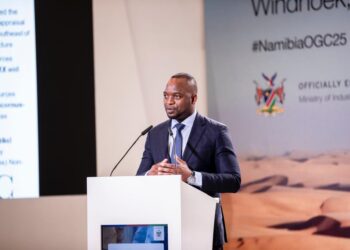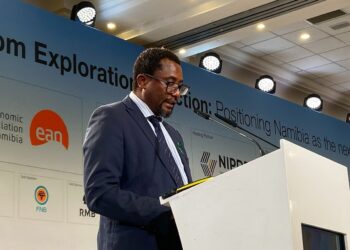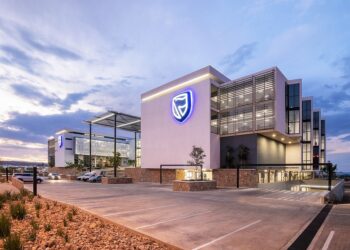
The National Petroleum Corporation of Namibia (NAMCOR) says 38 dry wells and an investment of over N$20 billion over three decades have laid the foundation for the recent successes in the Orange Basin.
NAMCOR Interim Managing Director Ebson Uanguta said these efforts, despite initial setbacks, are now driving significant discoveries expected to double Namibia’s economy within the next 15 years potentially.
“All these developments affirmed a long-held conviction that Namibia’s oil and gas sector was a significant oil and gas exploration frontier,†he said at the second Namibia Oil & Gas Conference.
“I must compliment the industry for holding fast to this conviction despite experiencing 38 dry wells worth over N$20 billion over three decades. It is the combination of petroleum geological and geophysical research data collected through this range of activities that eventually bore fruit.”
He noted that this has led to a surge in exploration and appraisal activities in the Orange Basin, aiming not only to increase the number of discoveries but also to accelerate their development, to achieve the first oil by 2030 or shortly thereafter.
He said NAMCOR’s technical teams are fully embedded in the appraisal processes contributing to the decision-making of the exploration and appraisal campaigns; and providing Namibia with potential production rates and the developable estimates of deep-water resources.
“Our enthusiasm has heightened at the possibility of progressing key projects with sound appraisal results from concept screening and selection to framing studies for Front End Engineering Design (FEED) to develop and accelerate contracting strategies for FPSOs and sub-sea infrastructure,” he said.
He noted that concerted efforts to conclude appraisal and shift the gear to development have brought to the fore the reality that Namibia could find itself as an exporter of crude oil in the early 2030s when several projects reach their production peaks.
“Our benchmarks have led us to anticipate new-build FPSOs with capabilities to produce between 100,000 to 150 000 barrels of oil per day as well as store approximately 1.4 to 2 million barrels of oil while handling gas over 500 million standard cubic feet per day,” he said.
He foresighted that, with four FPSOs deployed say by 2035, Namibia could be producing over half a million barrels per day of oil equivalent.
“This is a big foot for a frontier exploration area and a green field production area with potential to emulate the success of Guyana which is producing close to 600,000 barrels of oil per day. We could dislodge Egypt, whose current production is around half a million barrels per day, from the top 5 slots of the highest oil producers in Africa,” he said.
Meanwhile, at the same event, Deputy Minister of Mines and Energy Kornelia Shilunga emphasised the role of effective management and good governance in leveraging Namibia’s petroleum resources for socio-economic development.
She highlighted the importance of good governance in ensuring the fair distribution of economic benefits, and the critical role of international oil companies in fostering local prosperity through capacity building and local procurement.
She also highlighted the significance of state equity participation in petroleum licences through NAMCOR to safeguard national interests.
“Good governance of our upstream petroleum sector is imperative to ensure that potential economic benefits related to the exploitation of Namibia’s oil and gas resources are shared fairly and equitably,” she said.
Shilunga also outlined 12 guiding principles for Namibia’s national oil and gas policy to ensure sustainable development and maximise local value creation.











